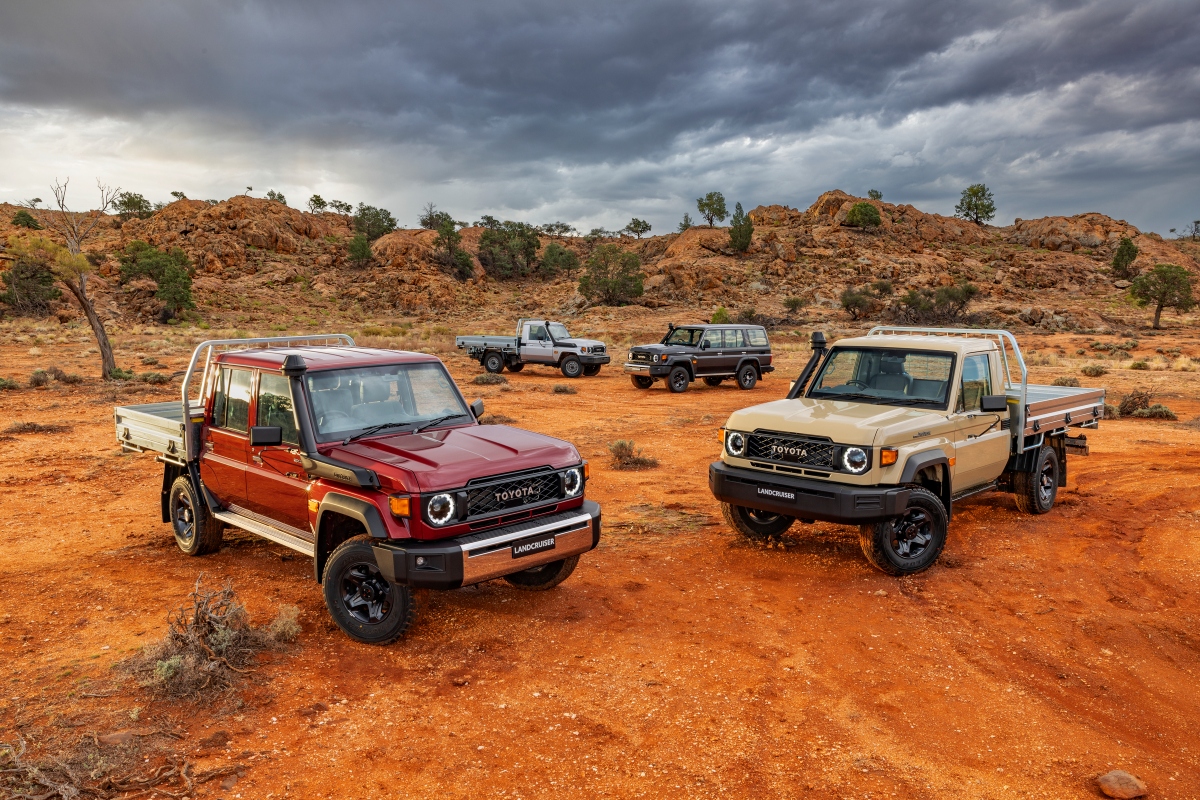
What is it?
Well, depending on your point-of-view it's either the best car on sale today or an out-dated and overpriced relic. But there's enough people in the former category to make the 70 Series LandCruiser one of the most in-demand new vehicles, with a waiting list so long Toyota Australia has stopped taking orders for selected models.
READ MORE: Iconic Toyota LandCruiser 70 Series adds V8 alternative
For those who aren't familiar with the 70 Series it's actually three different variants of Toyota's nearly 40-year-old off-roader – the 76 Series Wagon (SUV), 78 Series Troop Carrier and the 79 Series utes (both single- and dual-cab).
For those who are familiar with the 70 Series, this new-for-2024 version features one of the most comprehensive updates in the model's lifespan, with a new four-cylinder turbo diesel engine, automatic transmission and a new-look front end design.
Does it have any racing pedigree?
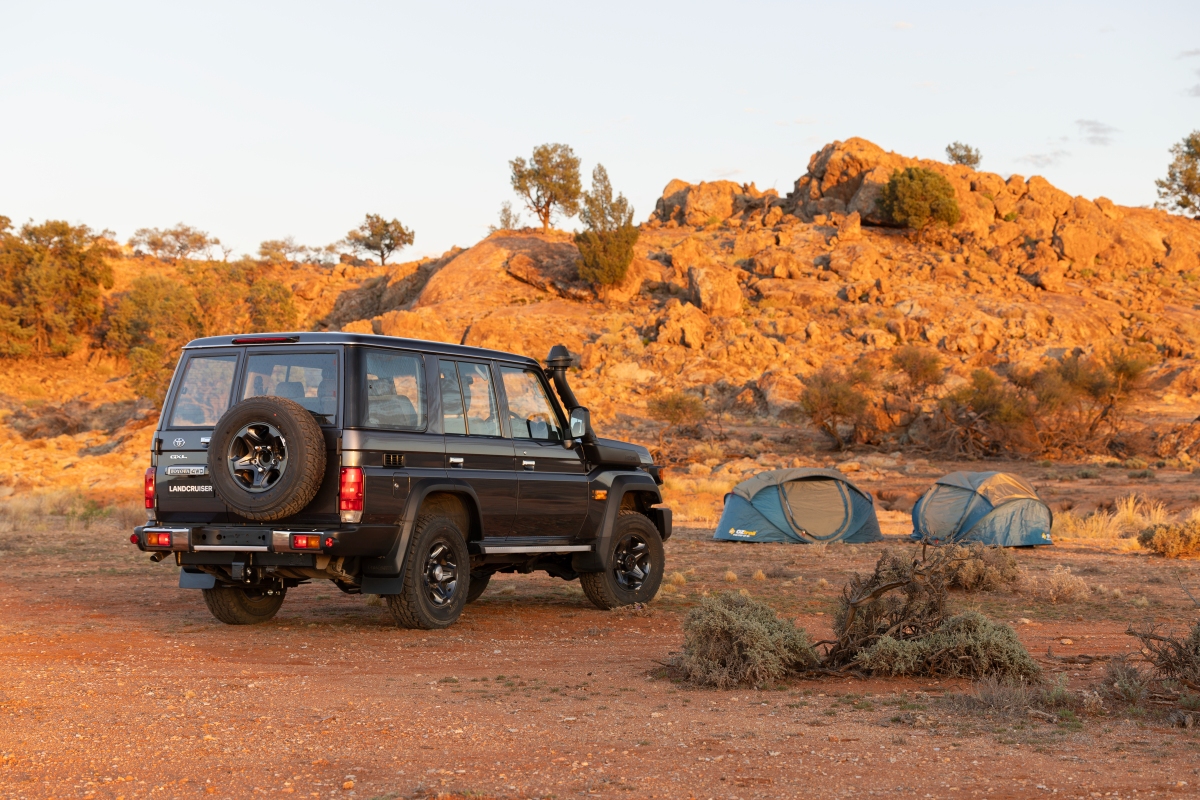
No. This isn't for racing, this is for working or exploring the most remote areas you can imagine in Australia. Toyota calls it ‘no roads' capable, which means it can keep going even when the dirt trail you're on disappears.
READ MORE: Toyota LandCruiser 300 Series review
What's under the bonnet?
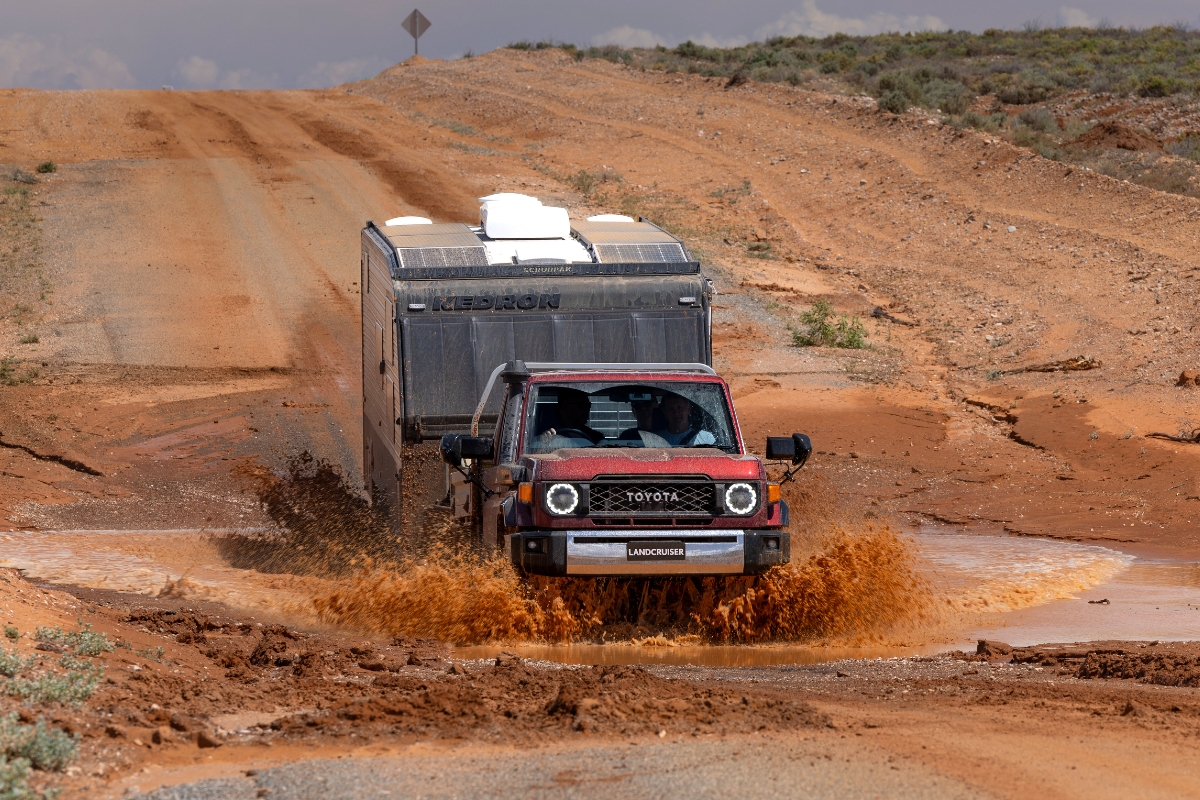
While there is a new four-cylinder engine, 70 Series fanatics don't need to panic because the 4.5-litre V8 turbo diesel has been retained. The bad news is, it's so popular that Toyota Australia doesn't want to take any new orders until it can clear some of the extensive waiting list, so it's off the table – for now.
The worse news is, unless you are an absolute ‘V8 or nothing' kind of person, there's really no need to buy the V8 anymore. That's because the new (or at least new for the 70 Series, as it's the same powertrain from the HiLux) 2.4-litre four-cylinder turbo diesel and six-speed automatic option is simply better in every regard.
Don't believe me? Well, the V8 makes 151kW of power and 430Nm of torque, while the four-pot makes 150kW and 500Nm. That translates to an engine that pulls stronger and feels smoother and less strained.
On top of that it also uses less fuel, 9.6-litres per 100km instead of 10.7, which extends the range of the 130-litre tank ute and Wagon by more than 100km – to a whopping 1350km (hence its strength exploring remote areas).
How does it handle?
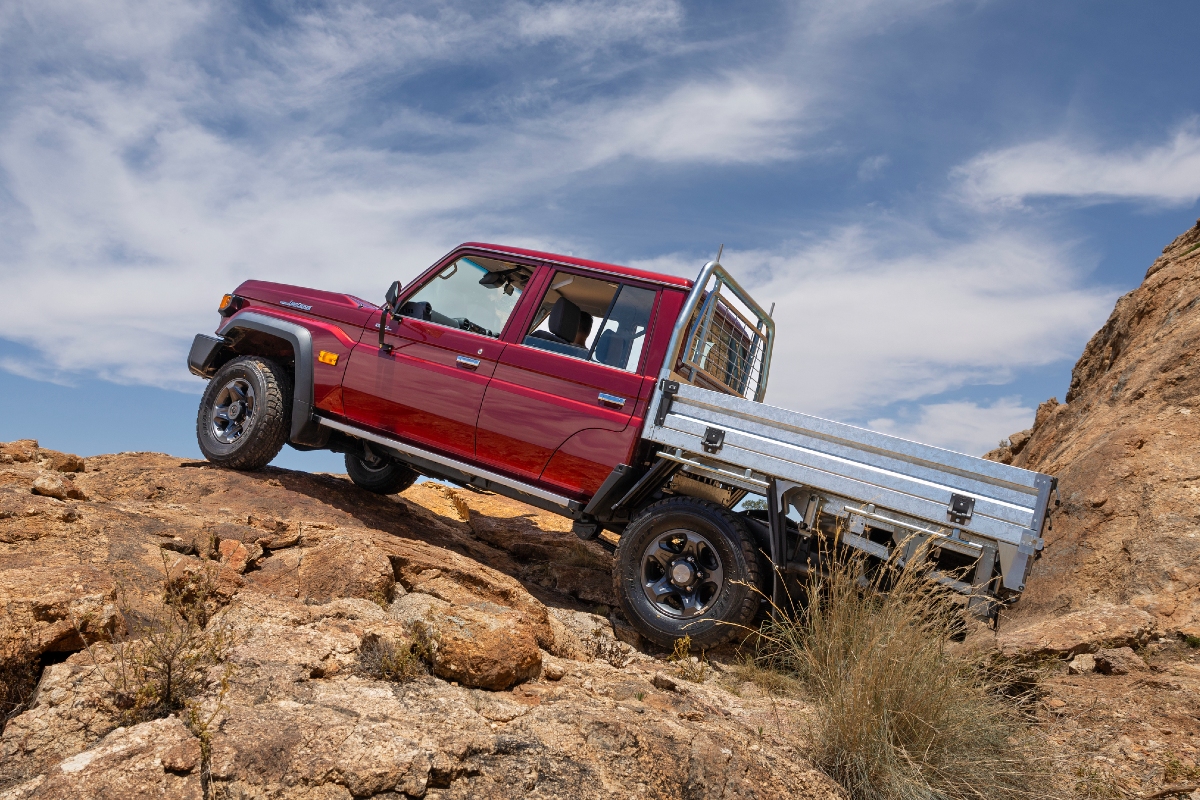
Well, on the road it handles a lot like you'd imagine a 40-year-old off-roader to handle. Slow and ponderous around town and floaty and vague at speed.
However, get it on loose surfaces and the 70 Series comes into its element. This really is an incredibly capable vehicle, you can point it at almost any piece of landscape and it will find a way to scramble up it or across it.
Few vehicles on the market today can do even half of what the 70 Series can do. It has incredible off-road prowess, which is why it has so much popularity in the most remote areas of Australia.
Where would you most like to drive it?
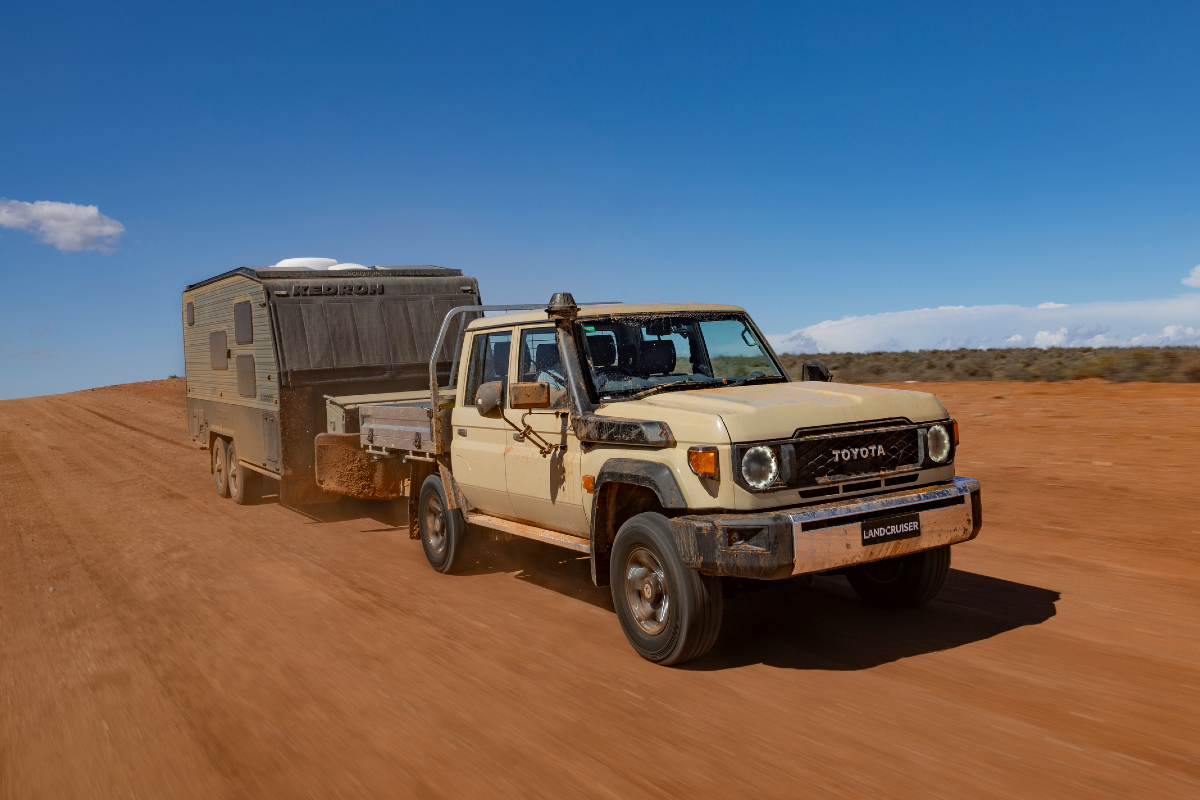
The 70 Series is the perfect vehicle to take you right across the middle of this wide, brown land of ours. It would be the ideal choice for an adventure into the Australian outback, far from the more populated coastal centres.
What's the interior like?
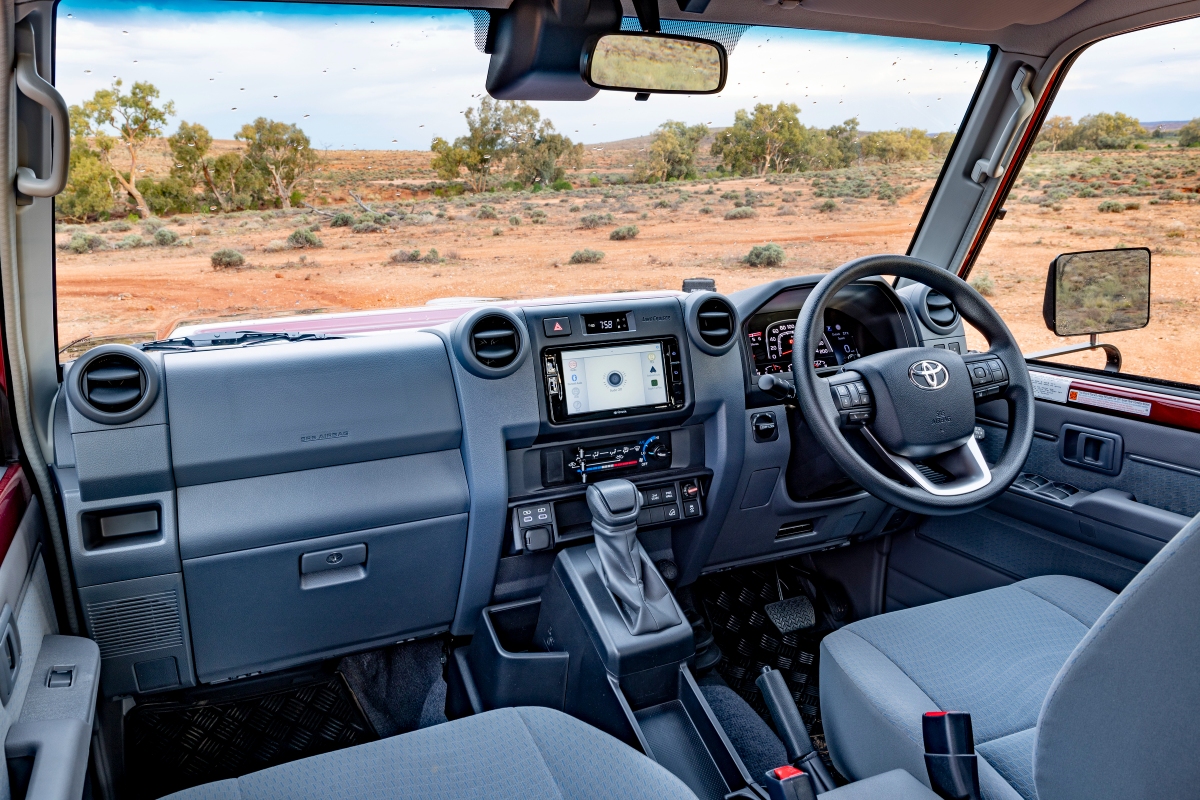
To call it ‘dated' would be an understatement. It's almost unchanged since 1984, so much so that in the lower grade WorkMate and GX models you'll find wind-up windows (perfect for confusing anyone under the age of 30!). It's still got ‘80s-style seat fabric and manual air-conditioning controls too, to complete the step back in time.
The nod to modernity comes in the form of a new infotainment system with a digital screen and USB ports, plus a few airbags.
How much does the Toyota LandCruiser 70 Series cost?
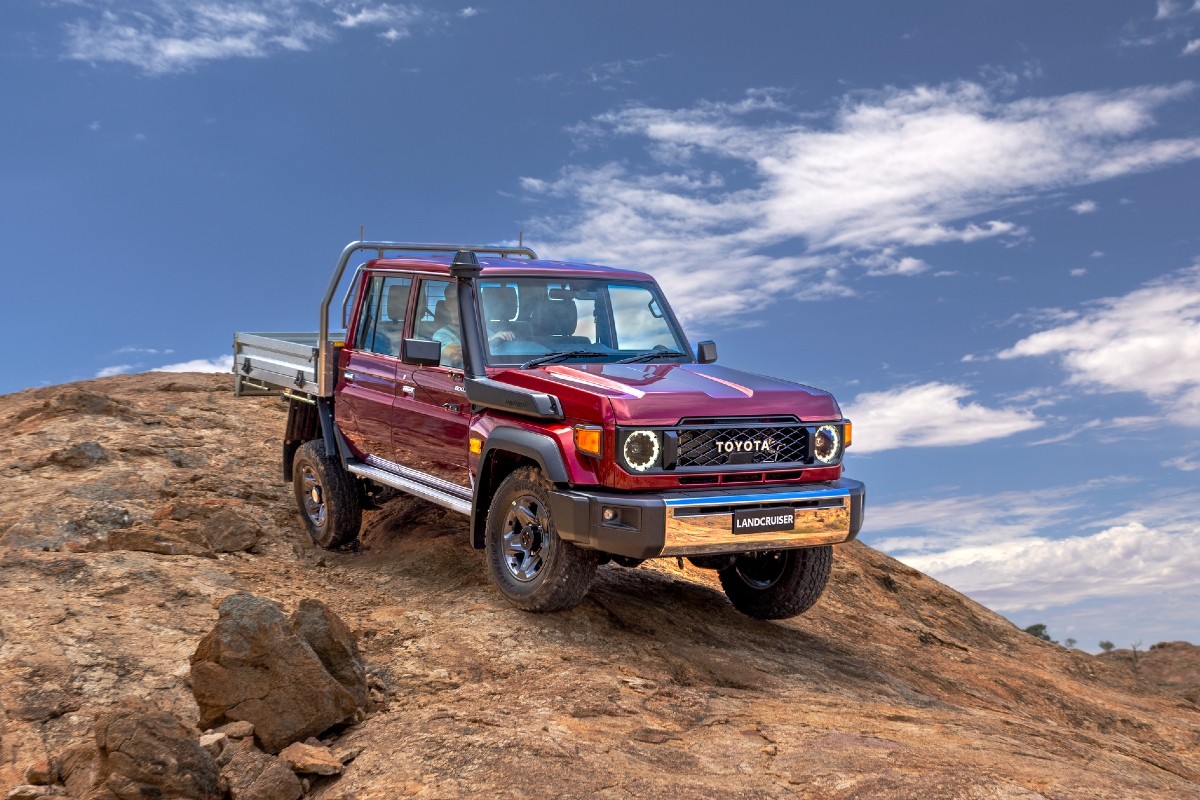
This is where things get a little crazy, because despite being largely unchanged since ‘84 (so Toyota having four decades to amortise the costs) the 70 Series is staggeringly expensive, starting at $75,600 for the 76 Series Wagon WorkMate. Yes, that's right, for $75k you get wind-up windows – and yet people are still lining up to buy one.
READ MORE: Ineos Grenadier goes Toyota LandCruiser hunting
Would I buy one?
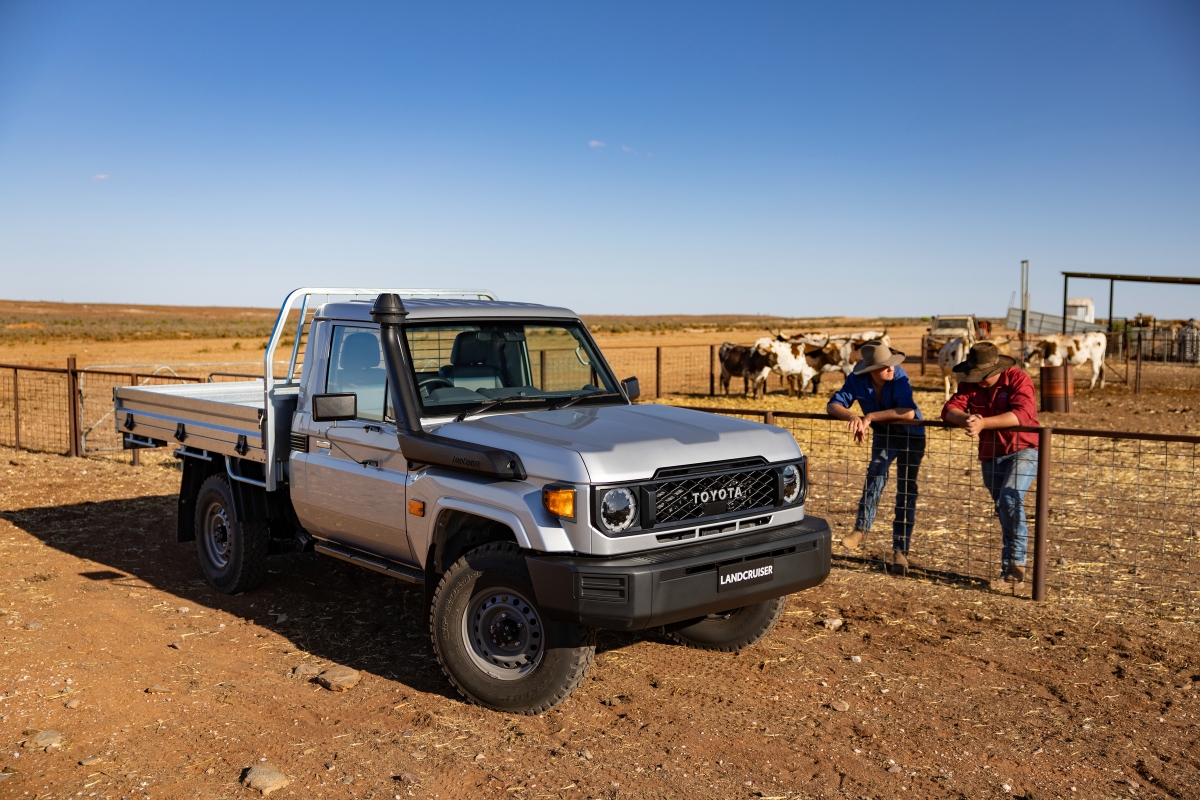
The truth is, by most logical reasoning the 70 Series is a seriously strange vehicle – it's still fundamentally the same vehicle it was in 1984 and yet costs almost as much as a house did back then.
But when you take it off-road and experience its awesome capability you can understand why it has such a devout following and why Toyota has been right to not mess with a winning formula.




Leave a Reply
Please login to join discussion!